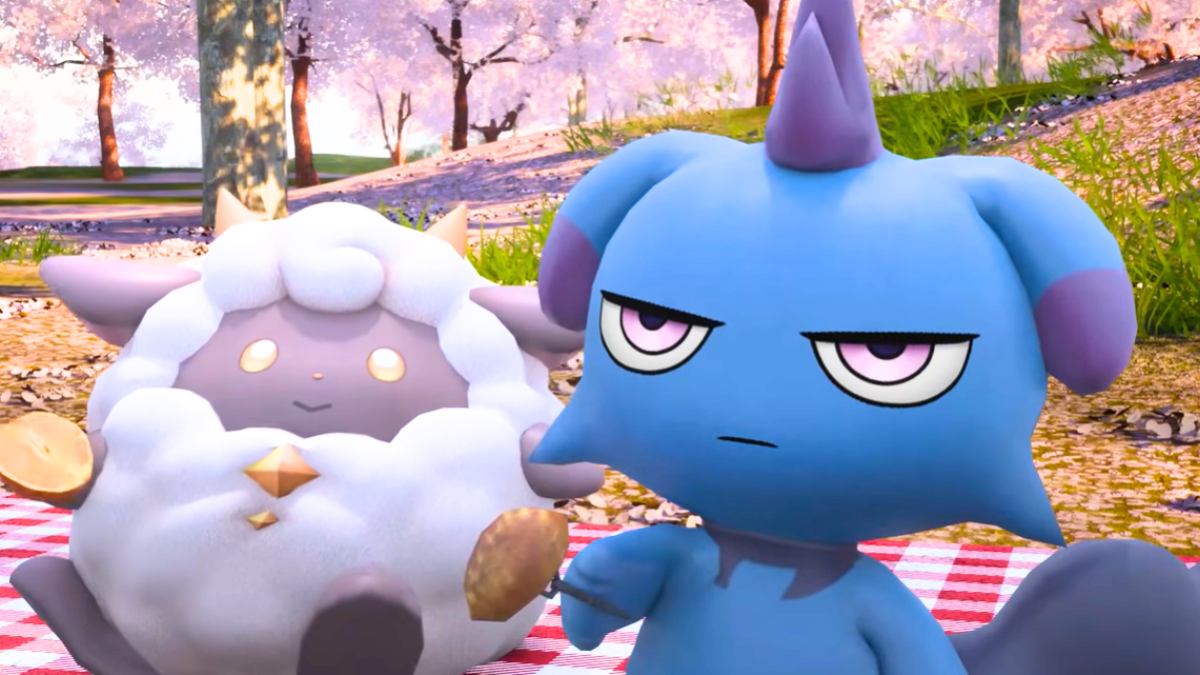Wizards in Dungeons & Dragons (D&D) Fifth Edition (5E) are a little different from what we see in pop culture. They are spellcasters who learned magic through experiments, studies, and other magical creatures. They believe that knowledge is power and are constantly searching for ancient spell scrolls, tomes, and secret inscriptions.
There isn’t much you can do with this class except for using magic, but the list of spells a wizard can use are almost limitless. We already explained how the magic system works and how to create a character in detail in our step-by-step guide, so now we’ll focus on the class’s best build and special features.
A Wizard’s Backstory
The objective of the background is to explain how your character got their skills and help you figure out what their ultimate goal in their journey is. All wizards had at least one extraordinary event in their lives that made them come into contact with magic.
Your character might have had a natural talent for magic, or maybe a mentor taught your character everything they know but it isn’t enough, or you need magic to get to your final objective. The possibilities are endless when it comes to creating a background, but it’s important to define how you got into practicing and studying magic.
The Class Features
Among the classes that are mainly spellcasters, wizards must have and use a spellbook. Spellbooks contain all the spells your character gain and all the research they’ve done. If they find a wizard spell during their adventure, they can copy it into their spellbook.
For each level of the spell you want to copy, it takes two hours and costs 50 gold pieces. After you meet these conditions, you can prepare the spell like you normally would. If your character loses the spellbook, they can transcribe the spells they have prepared, but the ones that are left must be found again.
Wizards depend on their spellcasting abilities and all features are focused on spending fewer spell slots and having stronger spells. You’ll notice that wizards have fewer class features than other classes, but that’s not the case. The majority of features becomes available after the character chooses an Arcane tradition to specialize in.
The features become available for the character to use at specific levels. Here is a quick summary of all the features a rogue can have in D&D 5E:
- Arcane Recovery: Once per day when you finish a short rest, you can choose expended spell slots to recover.
- Ability Score Imporvement: You can increase one ability score of your choice by two, or you can increase two ability scores of your choice by one.
- Spell Mastery: Choose a first-level wizard spell and a second-level wizard spell that are in your spellbook. You can cast those spells at their lowest level without expending a spell slot when you have them prepared.
- Signature Spells: Choose two third-level wizard spells in your spellbook as your signature spells. You always have these spells prepared and you can cast each of them once at third level without expending a spell slot.
Arcane Traditions
When your character reaches level three, they must choose one of the Arcane Traditions, schools of magic your character can specialize in, and receive exclusive features that enhance the school’s practice.
There are several arcane traditions, but we will present the eight schools of magic from the PHB. They are Abjuration, Conjuration, Divination, Enchantment Evocation, Illusion, Necromancy, and Transmutation.
School Of Abjuration
The School of Abjuration focuses on protective spells that can create magical barriers, cancel other spells, and even banish creatures.
- Abjuration Savant: Beginning when you select this school at second level, the gold and time you must spend to copy an evocation spell into your spellbook is halved.
- Arcane Ward: You can create a magical ward while casting an Abjuration spell. The ward takes damage instead of you.
- Projected Wand: You can create an an Arcane Ward to protect an ally 30 feet from you.
- Improvised Abjuration: When you cast an abjuration spell that requires you to make an ability check as a part of casting that spell, you add your proficiency bonus to that ability check.
- Spell Resistance: You have advantage on saving throws against spells and have resistance against the damage of spells.
School Of Conjuration
The spells from this school can transport objects and creatures from one place to another, summon them, and create objects and effects.
- Conjuration Savant: Beginning when you select this school at second level, the gold and time you must spend to copy an evocation spell into your spellbook is halved.
- Minor Cojuration: You can use your action to conjure up an inanimate object in your hand or on the ground in an unoccupied space that you can see within 10 feet of you.
- Benign Transposition: You can use your action to teleport up to 30 feet to an unoccupied space that you can see
- Focused Cojuration: While you are concentrating on a conjuration spell, your concentration can’t be broken as a result of taking damage
- Durable Summons: Any creature that you summon or create with a conjuration spell has 30 temporary hit points.
School Of Divination
School of Divination spells can reveal information, be it a secret from the past, a glimpse of the future, or the location of something hidden.
- Divination Savant: Beginning when you select this school at second level, the gold and time you must spend to copy an evocation spell into your spellbook is halved.
- Portent: When you finish a long rest, roll two D20s and record the numbers rolled. You can replace any attack roll, saving throw, or ability check made by you or a creature that you can see with one of these foretelling rolls
- Expert Divination: When you cast a divination spell of second level or higher using a spell slot, you regain one expended spell slot.
- The Third Eye: You can use your action to increase your powers of perception, temporarily gaining either darkvision, ethereal sight, greater comprehension, or the see invisibility feature.
- Greater Portent: You can roll three D20s for your Portent feature, rather than two.
School Of Enchantment
The spells from this school can control the minds of others, either controlling or just influencing their behavior.
- Abjuration Savant: Beginning when you select this school at second level, the gold and time you must spend to copy an evocation spell into your spellbook is halved.
- Hypnotic Gaze: As an action, choose one creature that you can see within five feet of you. If the target can see or hear you, it must succeed on a Wisdom saving throw against spell save DC or be charmed by you until the end of your next turn, leaving it without speed and incapacitated.
- Instinctive Charm: You can use your reaction to divert the attack from any creature that you can see within 30 feet from you.
- Split Enchantment: When you cast an enchantment spell of first level or higher that targets only one creature, you can have it target a second one.
- Alter Memories: When you cast an enchantment spell to charm one or more creatures, you can alter one creature’s understanding so that it remains unaware of being charmed.
School Of Evocation
School of Evocation spells are able to manipulate magical energy like fire, lightning, and healing. These are the most-used spells.
- Evocation Savant: Beginning when you select this school at second level, the gold and time you must spend to copy an evocation spell into your spellbook is halved.
- Sculpt Spells: When you cast an evocation spell that affects other creatures that you can see, you can choose a number of them equal to one plus the spell’s level. The chosen creatures automatically succeed on their saving throws against the spell, and they take no damage if they would normally take half damage on a successful save.
- Potent Cantrip: When a creature succeeds on a saving throw against your cantrip, the creature takes half the cantrip’s damage (if any) but suffers no additional effect from the cantrip.
- Empowered Evocation: You can add your Intelligence modifier to one damage roll of any wizard evocation spell you cast.
- Overchannel: When you cast a wizard spell of first through fifthlevel that deals damage, you can deal maximum damage with that spell. The first time you do so, you suffer no adverse effect, but there are consequences if used more than once.
School Of Illusion
Spells from this school can deceive the senses of others, such as their sight, smell, or hearing.
- Illusion Savant: Beginning when you select this school at second level, the gold and time you must spend to copy an evocation spell into your spellbook is halved.
- Improved Minor Illusion: You learn the minor illusion cantrip. If you already know this cantrip, you learn a different wizard cantrip of your choice.
- Malleable illusions: When you cast an illusion spell that has a duration of one minute or longer, you can use your action to change the nature of that illusion.
- Illusory Self: When a creature makes an attack roll against you, you can use your reaction to create the illusory duplicate between the attacker and yourself, making the attack miss.
- Illusory Reality: When you cast an illusion spell of 1st level or higher, you can choose one inanimate, nonmagical object that is part of the illusion and make that object real.
School Of Necromancy
The School of Necromancy is controversial since it uses spells that manipulate the energy of life and death. Only evil casters use this school.
- Necromancy Savant: Beginning when you select this school at second level, the gold and time you must spend to copy an evocation spell into your spellbook is halved.
- Grim Harvest: Once per turn when you kill one or more creatures with a spell of firstlevel or higher, you regain hit points equal to twice the spell’s level, or three times its level if the spell belongs to the School of Necromancy.
- Undead Thralls: You add the animate dead spell to your spellbook if it is not there already. When you cast it, you can target one additional corpse or pile of bones, creating another zombie or skeleton.
- Inured to Undeath: You have resistance to necrotic damage, and your hit point maximum can’t be reduced
- Command Undead: As an action, you can choose one undead that you can see within 60 feet of you.
School Of Transmutation
Spells from this school focus on changing the characteristics of objects and environments, such as making an inanimate object move.
- Transmutation Savant: Beginning when you select this school at 2nd level, the gold and time you must spend to copy an evocation spell into your spellbook is halved.
- Minor Alchemy: You can temporarily alter the physical properties of one nonmagical object, changing it from one substance into another, unless it’s a gemstone.
- Transmuter’s Stone: You can spend eight hours creating a transmuter’s stone that stores transmutation magic. You can benefit from the stone yourself or give it to another creature, granting one of the following characteristcs:
- Darkvision out to a range of 60 feet.
- An increase to speed of 10 feet while the creature is unencumbered.
- Proficiency in Constitution saving throws.
- Resistance to acid, cold, fire, lightning, or thunder damage.
- Shapechanger: You add the polymorph spell to your spellbook, if it is not there already and you can cast it without expending a spell slot.
- Master Transmuter: You can use your action to consume the reserve of transmutation magic stored within your transmuter’s stone in a single burst. This allows you to choose from the following effects:
- Major Transformation.
- Panacea.
- Restore Life.
- Restore Youth.
Quick Build
The Essentials Kit Rulebook recommends that you should choose Intelligence to have the highest ability score followed by Constitution or Dexterity. But if you intend to join the School of Enchantment, then choose Charisma as your second-best ability.
For the background, choose the sage on. Finally, pick the following spells: mage hand, light, and ray of frost cantrips and burning hands, charm person, feather fall, mage armor, magic missile, and sleep for the first-level spells.





Published: Sep 30, 2021 09:43 am